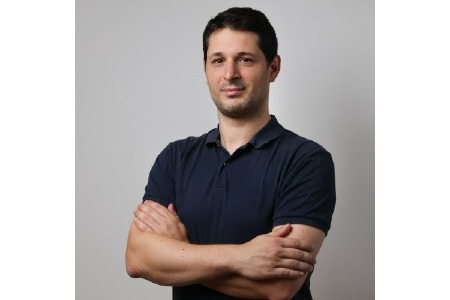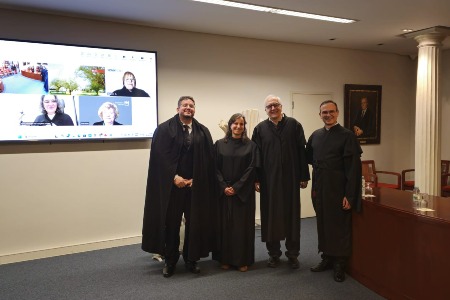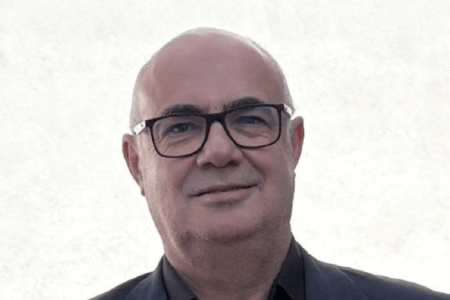We live in times when the motivation to discover and create seems to be threatened by the ease with which machines offer us information, already organised and interpreted. If machines seem to know everything for us, a central question arises for current teaching: why learn?
It is in this context that the role of the teacher is increasingly being put to the test. And it is precisely to this question that Rui Rodrigues, lecturer in the Department of Informatics Engineering (DEI), affirms that “the intrinsic satisfaction of discovering things, of creating things, of making things happen, of understanding what makes them work, and of sharing this with your fellow human beings” is the most obvious answer.
This educational vision resulted in Rui Rodrigues being distinguished with the Teaching Excellence Award, presented on FEUP’s Day, celebrated on January 13th. For the second consecutive year, a DEI lecturer has been honoured with this recognition, underscoring the sustained quality of the department’s pedagogical practices.
In a context where those who want to learn can often do so independently, Rui Rodrigues argues that the real challenge of teaching is: teaching people to enjoy learning.
“Indifference is all too common among students today, so I interpret this award more as recognition of the various efforts to combat this indifference than as a success in this challenge, which is never won. In this sense, it is an award that is certainly due to many of us (some even more deserving), who continually strive to find new ways to not only get the message across to the recipient, but to have it internalised.”
This approach has had a decisive impact on the careers of many students. Teresa Matos, a PhD student and colleague, recalls that it was in the practical classes in Computer Graphics that she found her area of interest: “It was in Rui’s practical classes in Computer Graphics that I found my area of interest, and it was later in the Student Computer Graphics Centre, with his constant support, that I found my way at FEUP.” She also highlights the professor’s tireless dedication to both students and colleagues, as well as his constant search for pedagogical innovation. “Seeing his tireless dedication day after day encourages me to strive to be a better educator and researcher. I consider him a true example of how to be an excellent professor.”
Pedro Silva, a former student and master’s student, also emphasises not only the professor’s scientific rigour, but also his human dimension. Throughout his academic career, he found in Rui Rodrigues a professor who was always available to answer questions and share knowledge, but it was during his dissertation that he recognised a particularly remarkable level of support. “He was a tremendous help during the writing of the document, both for his accurate suggestions regarding its structure and content, as well as for the advice he emphasised throughout the process.” Calmness, humour and empathy are traits that Pedro highlights as fundamental to overcoming the most demanding moments of the academic journey. “There are not many teachers, researchers and human beings like Professor Rui, and I hope he will continue at FEUP for many years to come.”
For Rui Rodrigues, teaching remains, above all, a deeply human exercise. In an increasingly automated world, the role of the teacher is to show that learning is not just about accumulating answers, but about developing curiosity, critical thinking and a desire to create — so that students are not only connected to the machine, but also to each other.
This award, granted ex aequo to Prof. Beatriz Oliveira, from the Department of Industrial Engineering and Management (DEGI), recognises not only the individual career of the teacher, but also a way of teaching that values pedagogy as a space for discovery, relationship and construction of meaning.








